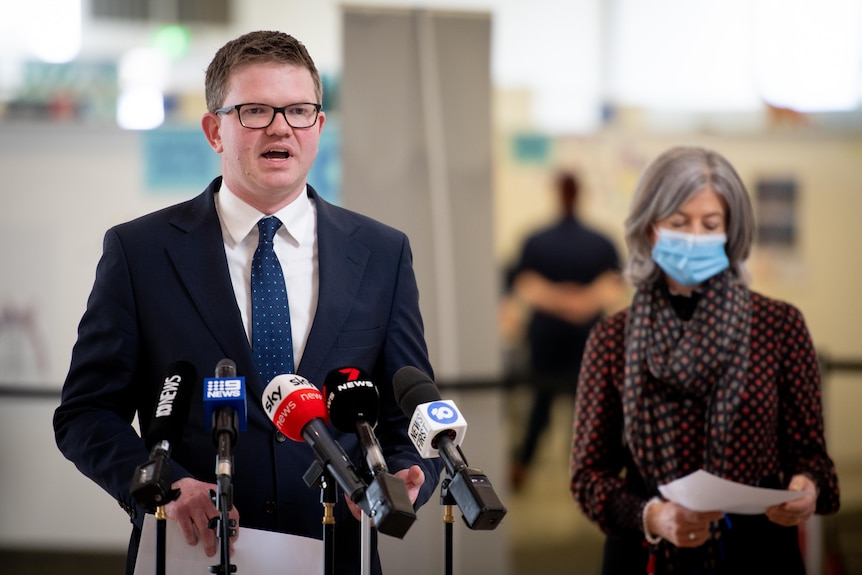Infection
‘Extremely concerning’ tuberculosis outbreak in far north South Australia prompts testing blitz
South Australian health authorities have screened more than 700 people in response to a tuberculosis outbreak in the state’s far north, with the spread of the potentially deadly disease described as “extremely concerning”.
Key points:
- SA Health has confirmed 11 active infections in the APY Lands and one death
- Health Minister Chris Picton says officials are concerned because of the community’s remoteness
- TB is a potentially fatal disease that spreads through the air when an infectious person coughs or sneezes
Thirteen people have tested positive for tuberculosis (TB) in the Aṉangu Pitjantjatjara Yankunytjatjara (APY) Lands since the outbreak started in March — an increase of one case from the last SA Health update in June.
There are currently 11 active infections and one confirmed TB death.
SA Health Minister Chris Picton this week travelled to the APY Lands to meet with health workers battling the outbreak.
He told the ABC that authorities had screened more than 700 people as part of a “statewide response” to stop the spread of the disease.
“We’re particularly concerned about it because of the remote nature of this community,” he said.
“People have obviously existing chronic health conditions and limited access to other healthcare services.
“To have an outbreak grow any larger than this would be extremely concerning.”
TB is a potentially fatal disease which isn’t commonly seen in Australia, but outbreaks have still detected across some Indigenous communities.
The bacterial infection spreads through the air when an infectious person coughs or sneezes.
It mostly affects a person’s lungs and causes fever, fatigue and a cough that can last for weeks.
‘Intense’ treatment to stop TB spread
In 2021, the World Health Organization (WHO) reported the number of people killed by TB had risen for the first time in more than a decade.
In 2020, 1.5 million people worldwide died from the bacterial disease, compared to 1.4 million deaths in 2019.
Mr Picton said authorities had previously detected TB cases in the APY Lands, but at a “much smaller number” than the current outbreak.
He said treating TB involved a “strict regime” of medications.
“For those cases that we have identified, there is quite an intense amount of treatment that has to happen,” he said.
“We need to make sure that that happens, so that we can help those people and obviously try to stem this outbreak from spreading any further.
“There’s also been a lot of work in terms of working with schools to make sure that kids can be vaccinated because we want to do everything we can to stop this from spreading and make sure we can identify every possible case.”
SA Chief Public Health Officer Nicola Spurrier said Australia had a national strategy to eliminate TB transmission.
“Unlike some other diseases, active tuberculosis can take years to develop after being infected, and months of complex medication to treat,” she said.
“We have strong partnerships and will be continuing our efforts for many more months to support the communities on the Aṉangu Pitjantjatjara Yankunytjatjara Lands.”
Experts travel to APY Lands to test, treat patients
In June, the SA government announced it would spend $1.9 million over 18 months to increase community awareness of TB.
Health workers from Adelaide have travelled to the APY Lands five times since the start of the outbreak to coordinate testing, screening, contact tracing and treatment for those who need it.
They have also helped train local workers to prevent the spread of the disease.
“Every effort is going in to bring the experts up, do that very significant testing — it involves X-rays, it involves blood tests — to make sure that we can identify it,” Mr Picton said.
“When we see an outbreak of this nature in a remote community, which has obviously got health challenges of its own here on the APY Lands, then we need to do everything we possibly can to stop that spreading and stop that becoming more of a risk to other people.”

